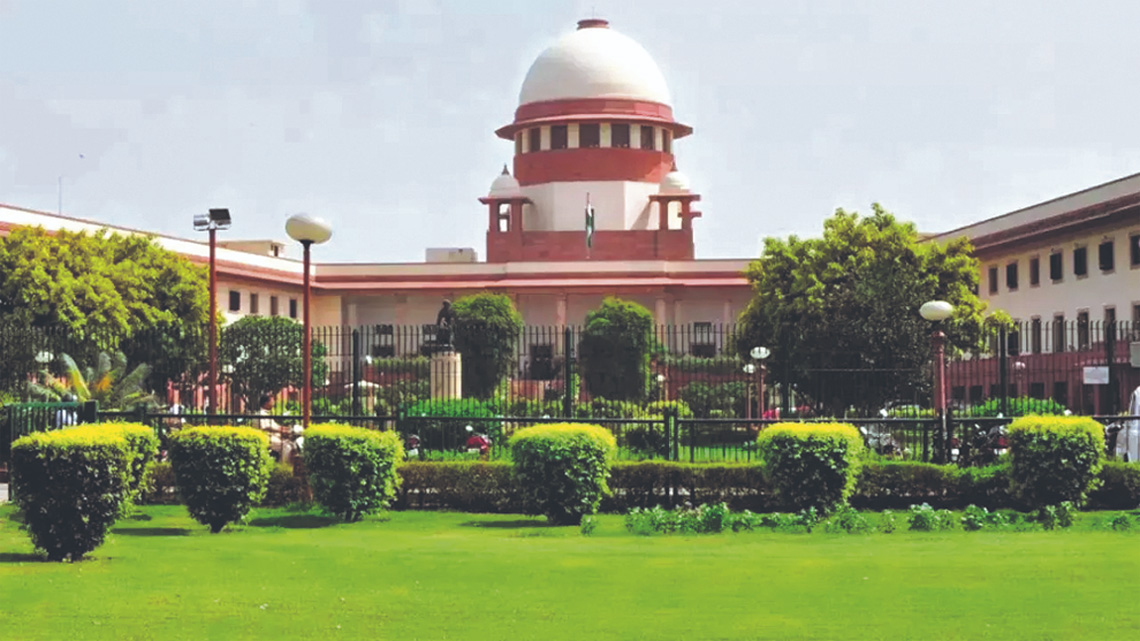Supreme Court Rules that a Trust Need Not Be Made an Accused in Cheque Bounce Cases
Case Title: Sankar Padam Thapa v. Vijaykumar Dineshchandra
Agarwal
Case Number: Criminal Appeal No. __ of 2025 [@ Special Leave to
Appeal (Criminal) No. 4459 of 2023]
Citation: 2025 INSC 1210
Date of Judgment: October 9, 2025
Bench: Justice Ahsanuddin Amanullah and Justice Prashant Kumar
Mishra

In a landmark judgment clarifying the liability of trustees under
the Negotiable Instruments Act, 1881 (NI Act), the Supreme Court of
India has held that a complaint for cheque dishonour is maintainable
against a trustee who has signed the cheque, even if the Trust
itself is not made an accused party.
Delivering the verdict in Sankar Padam Thapa v. Vijaykumar
Dineshchandra Agarwal, the bench of Justice Ahsanuddin Amanullah and
Justice Prashant Kumar Mishra set aside a Meghalaya High Court
decision that had quashed criminal proceedings on the ground that
the Trust was not impleaded as an accused.
The case arose after the respondent, Chairman of Orion Education
Trust, issued a cheque for ₹5 crore to the appellant for services
rendered in managing William Carey University, Shillong. The cheque
was dishonoured due to insufficient funds, leading to criminal
proceedings under Sections 138 and 142 of the NI Act.
The High Court had quashed the case, ruling that since the Trust
(Orion) was not made an accused, no vicarious liability could be
imposed on its Chairman. However, the Supreme Court reversed this
view, emphasizing that a Trust is not a juristic or legal person
capable of suing or being sued, and that trustees alone are
answerable for actions taken on behalf of the Trust.
"It is clear that only a Trustee has the obligation to file,
maintain and defend any suit on behalf of the Trust. Meaning
thereby, that a Trust does not have a separate legal existence of
its own," the Court observed.
The bench clarified that a trustee who signs a cheque acts in his
representative capacity but bears responsibility under the NI Act.
Hence, the absence of the Trust as a formal party does not
invalidate proceedings against such a trustee.
The judgment drew upon precedents such as SMS Pharmaceuticals Ltd.
v. Neeta Bhalla and K.K. Ahuja v. V.K. Vora, reaffirming that a
signatory of a dishonoured cheque is presumed responsible for the
incriminating act.
The Court also overruled contrary High Court decisions from Kerala,
Bombay, Madras, and Orissa, which had previously treated Trusts as
juristic persons for the purpose of Section 138 prosecutions.
Accordingly, the Supreme Court restored the criminal case before the
Judicial Magistrate, Shillong, directing it to proceed
expeditiously.
"When a cheque issued on behalf of a Trust is dishonoured, the
complaint under the NI Act is maintainable against the Trustee who
signed it, without arraying the Trust as an accused," the bench
concluded.
This decision settles a long-standing legal ambiguity regarding
whether Trusts are required to be made parties in cheque bounce
cases. The ruling confirms that trustees, not the Trusts themselves,
are legally accountable, a precedent likely to influence future
prosecutions involving charitable or educational trusts across
India.
Download the Judgment : Sankar Padam Thapa v. Vijaykumar Dineshchandra Agarwal